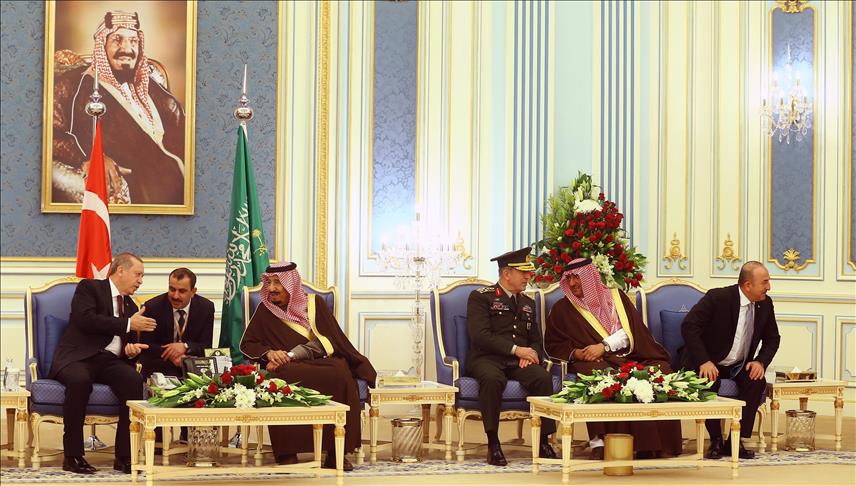Looking at Turkey’s historical relations with Arab countries, it should be noted that Turkey has been one of the influential states in the field of relations with Arab countries, especially the countries in the southern part of the Persian Gulf, in the past decades. Of course, these relations have focused more on the economic, political and commercial spheres. But since 2011 and after the Arab Spring events, Ankara’s relations with the Persian Gulf coastal states, especially Saudi Arabia and the United Arab Emirates, have undergone deeper changes.
In fact, given Saudi Arabia’s political and spiritual influence in the countries bordering the southern Persian Gulf, it seeks to align these countries with its regional policies in an intra-regional, Wahhabi-style coalition. On the other hand, after the Arab Spring, Turkey, as the representative of the Brotherhood in the region, has tried to present a new model of moderate Islam in the Middle East and North Africa.
Accordingly, the question of confrontation in the representation of the two models (Wahhabism and Brotherhood) has posed serious challenges to the relations between Riyadh and Ankara; Despite the two countries’ common interests in supporting Bashar Assad’s opponents in Syria, we see that Saudi Arabia and Turkey have distanced themselves from the self-made coalition in Syria against Bashar Assad’s regime, and differences between the two countries have become more apparent.
The point that highlights these differences is that, according to Turkish security officials, the security services and some Saudi and UAE officials were involved in the failed coup in Turkey. This will pave the way for future disputes between Turkey and some countries in the southern Persian Gulf. On the other hand, the murder of a Jamal Khashoggi, a dissident Saudi journalist at the Saudi consulate in Turkey, posed more serious challenges to Ankara-Riyadh relations, leading the two countries to exchange accusations against each other in the media field.
Other issues in Turkish-Saudi relations include Ankara’s efforts to balance relations with Iran and Russia. While Saudi Arabia continues to beat the drum of tension with Iran and rejects any positive message for reconciliation and the start of diplomacy aimed at overcoming regional crises with Iran, Turkey continues to participate in trilateral meetings with Iran and Russia in Astana talks in Kazakhstan.
Another issue that could complicate the crisis in relations between Turkey and Saudi Arabia and some pro-Riyadh countries in the future is the issue of Turkey’s relations with Qatar. Turkey and Qatar continue to support the Brotherhood in Egypt and some countries in the region. Even Ankara has set up several military bases in Doha, Qatar, to defend the Emir of Qatar and is committed to supporting the emir. This could also exacerbate the crisis between Saudi Arabia and Turkey and lead to a crisis.
Despite some economic cooperation between Turkey and Saudi Arabia and the United Arab Emirates, it seems that in the political and security spheres, serious challenges will lie ahead in the future. Another point is that perhaps due to the common threat posed by Saudi Arabia and the UAE to the resurgence of the Brotherhood model in the region, Riyadh and its allies are more inclined to expand military and political ties with Israel.
Finally, some south Persian Gulf states, such as Bahrain, have accepted Saudi Arabia as their godfather in the region. Bahrain coordinates all its domestic and regional policies, including with regard to Ankara, with Riyadh, due to the rule of the Sunni minority and fear of the position of the Shiites and their revolutionary uprisings.
But Oman has maintained a kind of independence in regional politics, especially in relations with Turkey and Iran. Kuwait is also working to resolve regional issues and the ongoing crises between Iran and Turkey with Saudi Arabia, and to avoid straining relations with Ankara and Tehran and exacerbating the crisis in the region.
Although Kuwait is more aligned with Saudi Arabia in some policies, especially the Yemeni crisis, in other issues between regional powers, it is trying to take the middle course and avoid serious involvement in these crises.










0 Comments